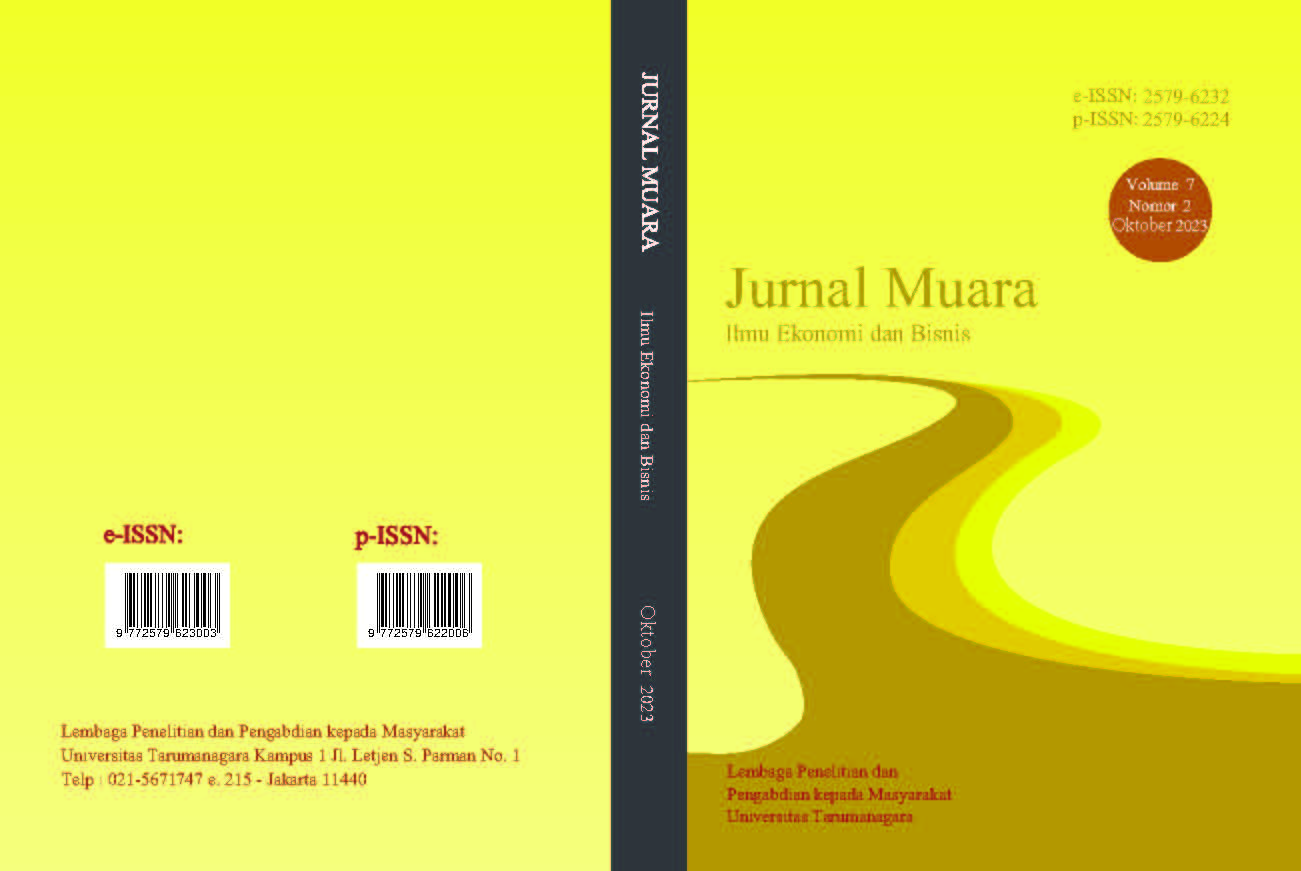KAJIAN KEPUASAN WISATAWAN TERHADAP LOYALITAS DESTINASI WISATA PANTAI KUTA BALI DI INDONESIA
Main Article Content
Abstract
Pantai Kuta merupakan salah satu destinasi wisata yang sampai saat ini banyak dikenal oleh wisatawan baik domestik maupun mancanegara. Tujuan penelitian ini adalah untuk menguji apakah Perceived Service Quality, Perceived Value merupakan prediktor positif terhadap Destination Loyalty dan Tourist Satisfaction. Penelitian ini melibatkan 200 sampel dari kalangan mahasiswa yang pernah berkunjung ke Pantai Kuta, Bali, untuk tujuan berwisata lebih dari 1 kali. Teknik pengambilan sampel yang dipilih adalah dengan menggunakan convenience sampling. Data yang diperoleh kemudian diolah dengan menggunakan PLS-SEM versi 3. Hasil penelitian ini menunjukkan bahwa Perceived Value memiliki pengaruh yang positif terhadap Tourist Satisfaction dan Destination Loyalty, adapun Perceived Service Quality tidak memiliki pengauh yang signifikan pada kedua variabel dependen. Implikasi hasil penelitian ini dapat menjadi masukan bagi organisasi manajemen destinasi (DMO), khususnya wisata pantai, dalam membuat strategi untuk meningkatkan kepuasan dan loyalitas wisatawan. Secara teoretis, implikasi hasil penelitian ini memberikan pengembangan pada kajian mengenai kepuasan dan loyalitas wisatawan.
Kuta Beach is a tourist destination that is widely known by both domestic and foreign tourists. The purpose of this study is to examine whether Perceived Service Quality and Perceived Value are positive predictors of Destination Loyalty as well as Tourist Satisfaction. This study involved 200 samples from students who had visited Kuta Beach, Bali, more than 1 time for the purpose of vacation. The sampling technique chosen is to use convenience sampling. The data obtained was then processed using PLS-SEM version 3. The results of this study show that Perceived Value has a positive influence on Tourist Satisfaction and Destination Loyalty, while Perceived Service Quality does not have a significant influence on both variables. The implications of this study can be suggestions for destination management organization (DMO), especially beach tourism, in making strategies to increase tourist satisfaction and loyalty. Theoretically, the implications of the results of this study provide development in the study of tourist satisfaction and loyalty.
Article Details
Section

This work is licensed under a Creative Commons Attribution-NonCommercial-ShareAlike 4.0 International License.
This work is licensed under a Jurnal Muara Ilmu Ekonomi dan Bisnis Creative Commons Attribution-ShareAlike 4.0 International License.References
Baksi, A. (2014). Moderating impact of tourism relationship management dimensions on tourism service quality, tourist satisfaction and destination loyalty. Decision Science Letters, 3(2), 169-186.
Chen, C.F., & Chen, F.S. (2010). Experience quality, perceived value, satisfaction and behavioral intentions for heritage tourists. Tourism Management, 31(1), 29-35
Chen, C.F. (2010). Exploring relationships between Mongolian destination brand equity, satisfaction and destination loyalty. Tourism Economics 16(4), 981-994.
Chiu, Q., Zeng, S., & Cheng, P. S. T. (2016). The influences of destination image and tourist satisfaction on tourist loyalty: a case of study of Chinese tourist in Korea. International Journal of Culture, Tourism and Hospitality, 10(2), 223-234.
Chi, C.G.Q., Qu, H. (2008). Examining the structural relationships of destination image, tourist satisfaction dan destination loyalty: An integrated approach. Tourism Management 29, 624-636.
Hair, Joe & Sarstedt, Marko & Hopkins, Lucas & Kuppelwieser, Volker. (2014). Partial Least Squares Structural Equation Modeling (PLS-SEM): An Emerging Tool for Business Research. European Business Review. 26. 106-121. 10.1108/EBR-10-2013-0128.
Hasan, M., Abdullah, S., Lew, T. & Islam, M. (2019). Determining factors of tourist’ loyalty to beach tourism destinations: a structural model. Asia Pacific Journal of Marketing and Logistics, 32(1), 169-187.
Henseler, J., Hubona, G. and Ray, P.A. (2016), "Using PLS path modeling in new technology research: updated guidelines", Industrial Management & Data Systems, Vol. 116 No. 1, pp. 2-20. https://doi.org/10.1108/IMDS-09-2015-0382
Kahraman, O.C. and Cifci, I. (2023), "Modeling self-identification, memorable tourism experience, overall satisfaction and destination loyalty: empirical evidence from small island destinations", Journal of Hospitality and Tourism Insights, Vol. 6 No. 2, pp. 1001-1023. https://doi.org/10.1108/JHTI-02-2022-0090
Kim, S.H., Holland, S., & Han, H.S. (2012). A Structural Model for Examining how Destination Image, Perceived Value, and Service Quality Affect Destination Loyalty: a Case Study of Orlando. International Journal of Tourism Research, 15(4), 313–328.
M., D.K., Govindarajo, N.S. and Khen, M.H.S. (2020), "Effect of service quality on visitor satisfaction, destination image and destination loyalty – practical, theoretical and policy implications to avitourism", International Journal of Culture, Tourism and Hospitality Research, Vol. 14 No. 1, pp. 83-101. https://doi.org/10.1108/IJCTHR-04-2019-0066
Rajaratnam, S.D., Munikrishnan, U.T., Sharif, S.P., & Nair, V. (2014). Kualitas layanan dan pengalaman sebelumnya sebagai moderator di menentukan kepuasan wisatawan dengan tujuan wisata pedesaan di Indonesia Malaysia: Pendekatan kuadrat terkecil parsial. Procedia – Ilmu Sosial dan Perilaku, 144, 203-211.
Sugiama, A. G. (2011). Ecotourism : Pengembangan Pariwisata berbasis konservasi alam. Bandung: Guardaya Intimarta.
Sun, X., Chi, C.G.-Q., & Xu, H. (2013). Developing Destination Loyalty: The Case of Hainan Island. Annals of Tourism Research, 43, 547-577.
Yuniawati, Y & Ridwanudin, O. (2015). Analysis of Travel Experience Quality at City Destinations. Journal of Business on Hospitality and Tourism. 1. 8. 10.22334/jbhost.v1i1.15.
https://dataindonesia.id/pariwisata/detail/pendapatan-devisa-pariwisata-indonesia-melejit-pada-2022




